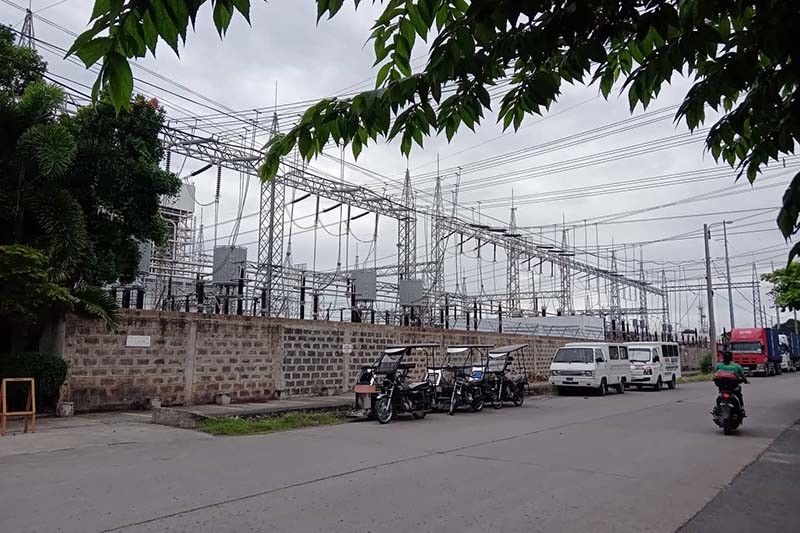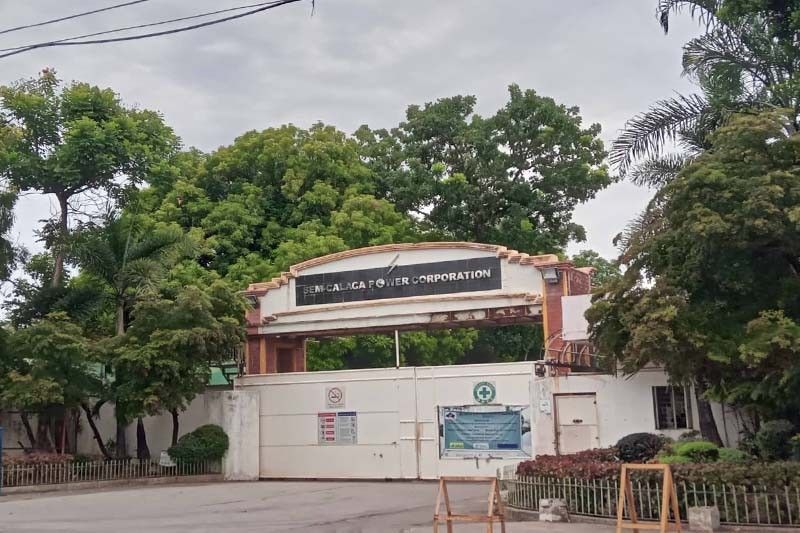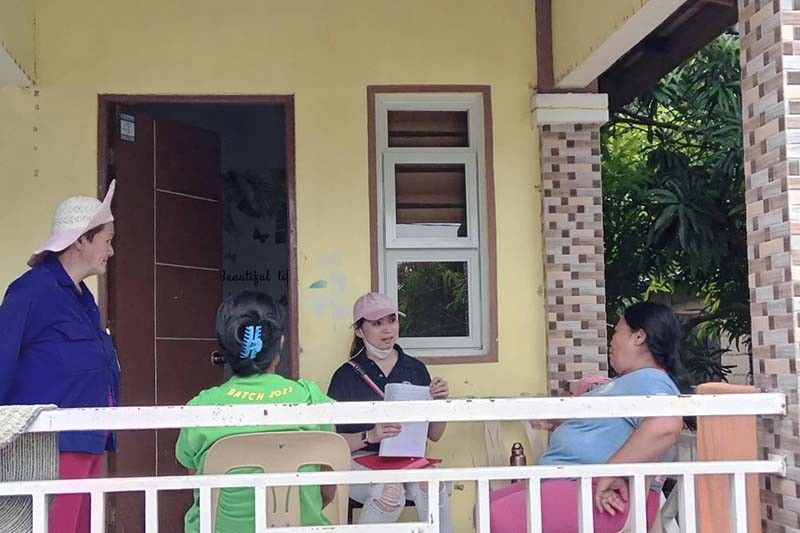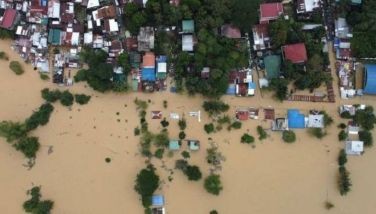Economic gains, scholarships mute concerns over long-term risks posed by Calaca coal plant

BATANGAS, Philippines — The bustling first-class municipality of Calaca became the fifth city in Batangas province after a plebiscite to ratify its conversion into a component city.
Advocates of the bid for cityhood said it will help boost the local economy and encourage more investors to set up their businesses in one of the growing industrial hubs in southern Luzon.
“Many people supported our dream. We owe our future to them,” Calaca Mayor Nas Ona said in a video.
Strategically located along Balayan Bay, the city of 87,000 people hosts various industries and power plants to provide electricity to industrial areas and estates.
The local government and residents of Calaca were initially skeptical of the coal projects and other factories due to the push to prioritize ecotourism and the preservation of mangroves in the bay, said Dr. Maria Balmes, a former councilor who had opposed the 2016 grant of a permit for a coal-fired power plant.
Balmes said the ecotourism bid was intended to be easily applicable and cost-effective by “[hitting two birds with one stone.” It was meant to keep the water and air clean, and provide livelihood to locals.
However, the program did not materialize due to lack of investors and the inconsistent number of tourists. Now, most residents support the coal plants as businesses provide them with opportunities.
Another reason that the ecotourism plan failed and the industrial hub has continued to thrive is Calaca’s proximity to the Batangas City-Lipa City trade network. It is a major stopover for imported coal, oil, and gas, providing energy supplies to southern Luzon and the southern portion of Metro Manila.
Health risks from coal combustion
Calaca is home to a 600-megawatt coal-fired power plant owned by the DMCI Holdings. The plant is close to the Semirara mine site, which produces 90% of the country’s total coal output.
The burning of coal is not only a major driver of climate change, but it is also a main source of air pollution.
According to a study published in International Journal of Environmental Research and Public Health in 2019, exposure to coal-based energy emissions has a statistically significant adverse effect on pediatric neurodevelopment, birth weight, and pediatric respiratory morbidity.
In a 2018 study of the Lyceum of the Philippines in Batangas City, researchers said that living close to coal-fired power plants increases the risks of various diseases. Health risks from long-term exposure include pneumonia, lung cancer, heart disease, heat stroke and brain damage.
‘Plant not to blame’

But some residents living near the DMCI power plant in Barangay San Rafael believe the emissions from the coal generator do not pose a threat to their health.
Barangay health workers also claim the company, which conducts medical missions in Calaca, is not at fault.
“Tingin namin, hindi naman planta ang dahilan kung bakit may low birth weight kapag may nanganganak kundi malnutrisyon at kahirapan tuwing nagbubuntis ang mga nanay,” said Feliza Sapico, a barangay health worker and a mother.
(For us, the power plants are not the reason why there are low birth weights; it’s the malnutrition and the poverty of the pregnant mother.)
Other mothers interviewed shared the same belief. They claimed the health issues of residents and their children were “genetically inherited, or [they were] just born that way.”
However, the study states that air pollution brought by the coal plants can affect reproductive health.
Pregnant women face the risk of having babies below normal weight and those children may be born with heightened risks of pneumonia, asthma and heat stroke.
The study also highlighted that these risks are long term and will show up years or even decades after consistent exposure to air pollution from coal combustion.
Health vs jobs
Since the health problems are not immediately apparent, it is easy for those affected to dismiss risk of exposure, especially if job security is involved.
Dominic Razon, barangay chairman of Barangay San Rafael, also mentioned that plant operator DMCI is providing scholarships and job opportunities to the youth in Calaca who are taking engineering-related courses.
He said that these help parents who are struggling to send their children to school.
According to Dr. Erlidia Llamas Clark, a member of the Philippine Obstetrical and Gynecological Society, there are studies suggesting there is a decrease in the body’s physiological functioning if people are exposed to emissions long term.
“In particular, studies suggest that mothers [who are exposed to coal-fired power plants] can have some form of preterm birth or low birth weight [of their babies]. However, there are factors to be considered. It’s not like a causal thing but more comprehensive study needs to be done presently,” she added.
Authors reached out to DMCI for comments, but the company has yet to respond to queries as of writing.
Reducing exposure from dirty energy

The 2018 study recommended that the Philippine Clean Air Act of 1999 should be improved to combat air pollution.
Proposed amendments include formulating risk reduction management through proper implementation and coordination among residents near coal plants, and accurate analysis of air quality information.
It also proposed that residents be made aware of the hazardous effects of coal, which could be done through community meetings and health seminars facilitated by representatives of firms, the municipal or city health office, and non-governmental organizations that are stakeholders in the communities.
These seminars should emphasize how coal creates air pollutants, how the pollution affects parts of the body, and most crucially how these have long-term effects that appear years or even decades after prolonged exposure.
The study also recommends a shift in government policies towards non-polluting renewable energy as soon as possible.
“A shift to renewable energy might be good. We have to explore that solution to make sure that when we utilize it, it can truly help reduce the risk of dirty energy to the health of women in nearby communities,” Llamas-Clark said.
“Sadly, there are still little to no relevant studies about this today. That is why it is important for us to highlight community health in the studies being conducted for assessing the just energy transition in the Philippines,” she added.
The UP College of Medicine professor also recommended strengthening the competencies and knowledge of community health workers in addressing these issues, and lobbying for and implementing key policies that will make health a priority in planning and building industries up.
Aya De Leon, director of environmental consulting firm Parabukas, said “the right to health of [Filipinos] should be and could be protected against carbon majors.”
“Local government units are our first line of defense when we are talking about the health of constituents and [they] can be models,” De Leon said.
“By taking it one LGU at a time, or even a few LGUs, to give models of what a just energy transition will look like, it can be scaled up over time.”
The question remains how Calaca, a new component city, will balance protecting the health of its constituents while boosting its local economy. — Sophia Alyanna Bonifacio and Earl Fitts Matamu
This story is supported by Climate Tracker
- Latest



























